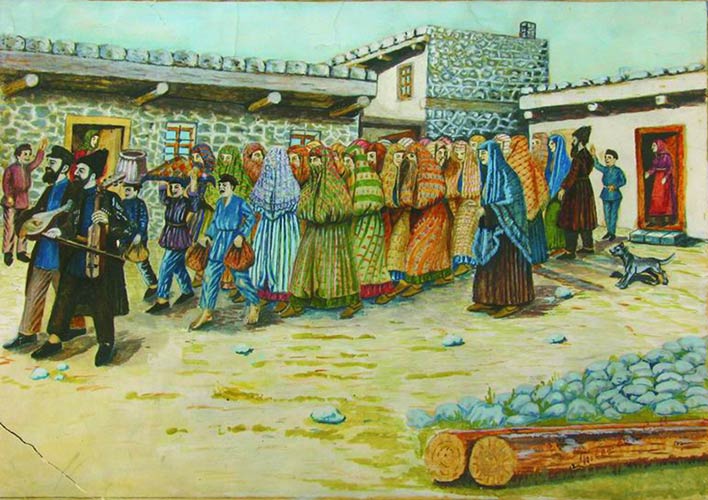When I asked my husband if he had any inspirations to share with me on this week’s Torah portion, Metzorah, he stared out into space and uttered a singular sound, his breath caught in his throat: “ugh.”
I could not disagree with him. I certainly remember an occasion or two when we had snickered about some of the least inspiring texts of the Torah; the purity laws in Leviticus regarding skin lesions and bodily discharge were a perfect example.
And yet, as I reread Metzorah, I had to ask myself about the significance of this text the week before Passover as we prepare to retell the narrative of our liberation.
Sure, many rabbis have talked about lashon harah, or the evil tongue, as the interpretation of the affliction of leprosy. There is a good story in Numbers 12 that gives a hook to the theme of lashon harah when Miriam is punished with skin disease for speaking poorly about Moses.
That will be a good lesson to remember as we gather at our Passover seders when family dysfunctions have a way of sneaking up on us. Not to speak harshly about one another is a good reminder. But is that all?
“Turn it, and turn it again,” Ben Bag Bag said about the Torah, “for everything can be found inside. Study it, get old and gray with it.” And so it is true. For upon rereading Metzorah this week, a whole new meaning came crashing down on me. I do feel older this week, and grayer.
This month I traveled to Los Angeles to help bury the 8-year-old child of a friend of mine. This child was dear to me, and even though her death followed many years of struggle between health and illness, it shook me to the core of my being. Funerals are part of clergy family life and the ebbs and flows of emotion that follow rarely shake me. This particular funeral broke my heart.
Other deaths followed: a young mom in my daughter’s preschool class; my closest friend’s mother, who suffered from ALS. It was a tough month as I accompanied my friends in their losses.
And then an angel came. A friend called and asked if I would like to go to the mikvah before graduation next month. She offered to create a ritual for me and come with me to the mikvah at MACoM. I thanked her, feeling slightly undeserving of that much attention and not understanding the significance of this kindness just yet.
As I stood at the top of the mikvah pool, not only baring my body, but also exposing my aching soul, I felt the ritual take hold of me. My friend examined the back of my neck, becoming the priestess, checking the cleanliness of the offering. The pool before me became the container of the primordial waters.
My skin felt brittle, as if it had crossed into the valley of death. I remembered the words of a friend who is a psychotherapist, describing to me the residue of pain that she felt on her skin after many hours of presence for others. And I began to cry.
It is difficult to describe the experience of crying without sound. Rilke wrote a poem that resonates:
I dig for You, G-d, like treasure
My hands are bloody from digging.
I lift them, hold them open in the wind,
So they can branch like a tree.
Reaching, these hands would pull you out of the sky
As if you had shattered there,
Dashed yourself to pieces in some wild impatience.
What is this I feel falling now,
Falling on this parched earth, softly,
Like a spring rain?

My friend asked me to think of all of the people who had helped me on my journey as I stepped into the mikvah. I thought of all of the courageous teachers who welcome brokenheartedness, who do not shy away from silence, who offer insight through the hard work of turning, turning, every stone, every word of Torah, so that we might live through the text. And when the water engulfed me and welled in my nostrils, I felt safe, and I felt purified. Strength returned as I offered my tears and sloughed off the pain.
Alive. Alive. The waters reminded me that I am very much alive.
It is helpful to me to interpret tzaarat, or the skin disease that this week’s parshah discusses, as the residue of pain that is left on our being after we help take care of others. This residue must be cleansed and purified, for our sake and the sake of those we care about.
The moments of silence and connection in the mikvah waters were a gift for me. A gift of insight and healing. A laundering of my inner and outer garments. For me, this purity ritual was the first step toward preparation for Pesach, the experience of mitzrayim,or my narrow places, and the spiritual liberation from despair.
I prayed for strength. As now, I pray that we all continue digging for G-d, turning stones, sloughing off pain, purifying and beginning anew. And I am grateful for purification rituals that help melt the residue of pain that we carry on our skin.
Originally published in Atlanta Jewish Times